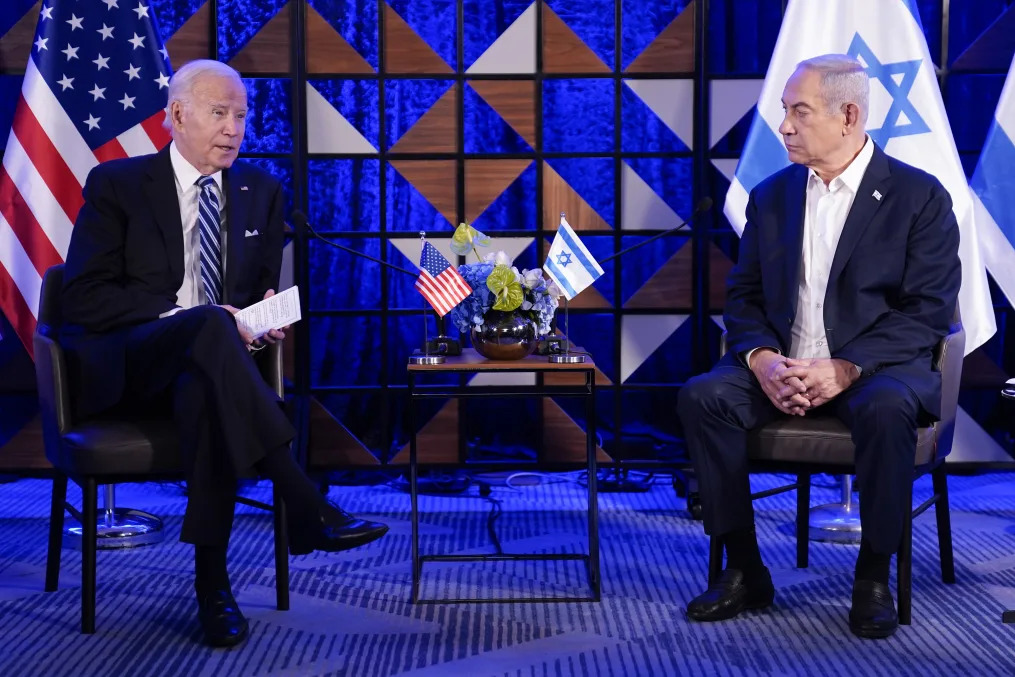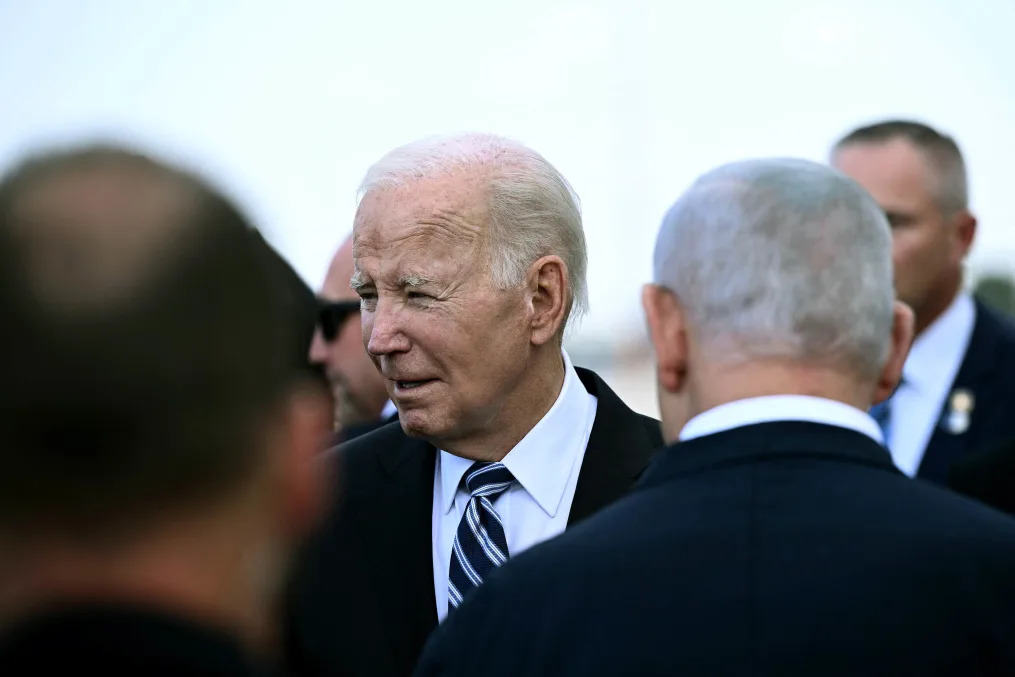President Joe Biden arrived in Israel on October 18, for one of the most complicated diplomatic trips of his presidency, an extraordinary high-stakes visit to a region gripped by violence. During his visit, he expressed condolences for the explosion at a Gaza City hospital, suggesting that it appeared to be carried out by "the other team."

“I was deeply saddened and outraged by the explosion at the hospital in Gaza yesterday (on October 17). And based on what I’ve seen, it appears as though it was done by the other team, not you. But there’s a lot of people out there who’re not sure. So we have to overcome a lot of things,” he said.
The president did not provide specific evidence to support his conclusion about the source of the explosion. Before his departure to Israel, the U.S. government had not yet reached a definitive conclusion about the origin of the rocket strike on the hospital, and Biden instructed his national security team to continue evaluating incoming information. It's unclear if any intelligence beyond what the Israelis provided was collected.
Biden's historic arrival in wartime Tel Aviv marked his most forceful public show of support for Israel since the October 7 attacks by Hamas, which resulted in casualties, including Americans and Israelis, and the continued hostage situation involving Americans. The conflict in the Gaza Strip has also resulted in a significant number of casualties.
“Americans are grieving with you, they really are. And Americans are worried. Because we know this is not an easy field to navigate, what you have to do,”
Biden told Israel Prime Minister Benjamin Netanyahu.
Netanyahu expressed his gratitude for the "unequivocal support" and "unprecedented" cooperation between the two nations. He thanked Biden for drawing a "clear line between the forces of civilization and the forces of barbarism" in the face of the recent conflict.
The president's visit to Israel comes as he aims to manage the complicated situation in the region while working to prevent the violence from escalating further. He has been focused on maintaining a balance between supporting Israel and preventing the situation from turning into a broader military conflict.

Biden's primary objective during this visit is managing the complex dynamics in the region, and there is less emphasis on securing specific deliverables. The cancellation of the Jordan portion of the trip underscores the administration's cautious approach to the situation.
Trip loomed over by hospital blast
In Gaza City, Al-Ahli Baptist Hospital was attacked less than a day earlier. The Palestinian government has blamed Israel for the explosion at the center of the city, which killed hundreds. Despite Israeli denials, Palestinian Islamic Jihad is blamed for the failed rocket launch.
The White House was asked if the U.S. government has assessed the blast's cause further since the president left.
In addition to surveillance satellites and ground-based radar, the U.S. has a wide range of capabilities when it comes to detecting launches and determining their origin. In 2014, analysts at the Defense Intelligence Agency determined within days that Malaysia Airlines Flight 17 was shot down over Ukraine by a Russian anti-aircraft missile.
The prime minister signaled on October 18, that the hospital bombing was the work of a "different kind of enemy" in Hamas as he detailed the terrorist group's willingness to "hide" behind civilians.
In his remarks to Biden, he said, Hamas has no regard for Palestinian lives, and it wants to kill as many Israelis as possible.

As the president went onboard Air Force One, Biden's preparations for the trip were thrown into disarray due to the hospital explosion. During the Jordan portion of the trip, the president was scheduled to meet with Jordan's King Abdullah II, Egypt's President Abdel Fattah el-Sisi, and Palestinian Authority President Mahmoud Abbas to coordinate a humanitarian response, but the summit - and the Jordan leg of the trip - were canceled. The White House highlighted Abbas's declaration of a period of mourning as the reason for the postponement. The world was "rightfully outraged" by Tuesday's actions, Netanyahu noted.
"But this outrage should be directed not at Israel, but at the terrorists,"
he added, assuring Biden that Israel "will do everything it can to keep civilians out of harm's way."
The ensuing firestorm and blame game will loom over Biden's discussions in Israel. Netanyahu and President Isaac Herzog received him at the airport, and he hugged them on the runway before departing for the conference venue in Tel Aviv.
The participation of Biden, who values personal diplomacy, is intended to demonstrate unity with the United States' closest friends and to prevent rogue entities in the region from establishing a second front in the war.
While violence, like as the hospital bombing, was always a danger of the visit, the president's staff judged that the benefits justified the risks. According to many sources, the president's closest aides did not consider canceling the trip to Israel on October 17.
Follow Daryo's official Instagram and Twitter pages to keep current on world news.
Comments (0)